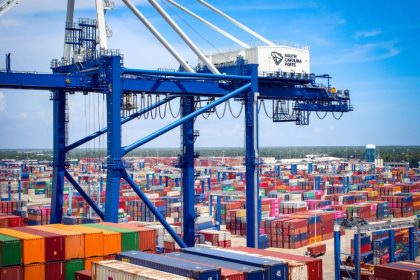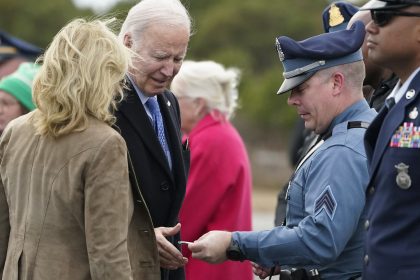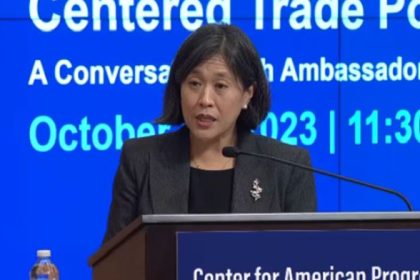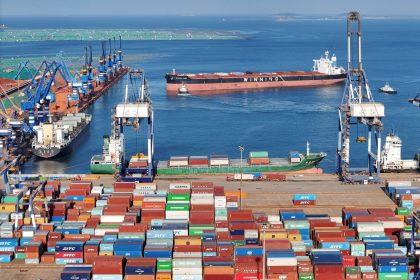Expert Says USMCA Will Make North American Firms More Competitive
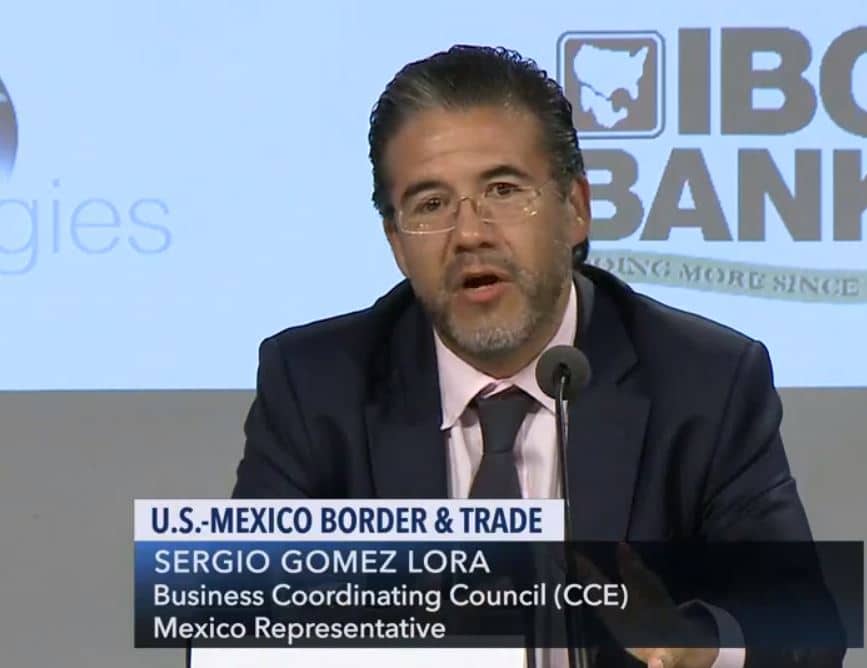
WASHINGTON – Although it barely caused a ripple given the understandable focus on the worldwide coronavirus outbreak, a historic new chapter in North American commerce began two weeks ago Friday, when Canada became the third and final country to ratify the region’s new trade pact.
The U.S.-Mexico-Canada Agreement, also known as USMCA, replaces the 25-year-old North American Free Trade Agreement.
The trade deal, ratified by the Mexican legislature last June and by Congress in January, was formally ratified by the Canadian Senate on March 13, and shortly thereafter received royal assent, the Canadian governor general’s approval.
The deal was passed through the legislature just as the Canadian Parliament was shutting down for five weeks in response to the coronavirus pandemic.
Canadian approval kicked off a three-month period for all three signatory countries to agree on implementation regulations, including naming each country’s representatives for the conflict resolution mechanism.
Among those watching these developments anxiously was Sergio Gomez Lora, of Mexico’s Business Coordinating Council, known as CCE, the nation’s largest business lobby.
“It was a big breakthrough,” Lora said of the signing, which came just over a month after President Donald Trump signed the bill in January.
“Not only does it recognize how huge the trade among the three countries actually is, it also restores a level of certainty that had been missing since at least President Trump’s election campaign in 2016.”
Back then, Trump called NAFTA the worst trade deal he’d ever seen and vowed to do away with it, even if it meant walking away without a suitable replacement.
The new deal includes major changes on cars and new policies on labor and environmental standards, intellectual property protections, and some digital trade provisions.
But for Lora all of them are surpassed by the simple peace of mind a ratified trade deal lends each partner.
“What you have to understand is Mexico has enjoyed a long and relatively free trading relationship with the United States, a relationship that changed dramatically with the passage of NAFTA in the mid-1990s,” he said.
He went on to explain that the first thing NAFTA did was establish free trade of all agricultural and manufactured goods among the three nations.
“But even bigger than that were the economic and market disciplines that NAFTA put in place, particularly in Mexico,” Lora said.
“Mexico was a very closed economy prior to NAFTA, not only in regard to the trade goods, but also the trade of services. NAFTA instilled in the Mexican economy the disciplines it needed to be a market-oriented economy,” he said.
These included new rules regarding the protection of intellectual property, government procurement, health and sanitation requirements in manufacturing, and the establishment of institutions to implement all of these market-economic obligations.
“This had a tremendous, transformative effect on Mexico, and enabled us to be integrated with the value chains of North America,” Lora said, adding, “the end result was that North America became a single market in terms of the way we produced things together and competed together vis-a-vis Asia and Europe.”
As good as NAFTA was for Mexico, Lora understood the need for change.
“First of all, you’re talking about an agreement that was written a long, long time ago, and the world has changed dramatically since then,” he said.
“One thing the negotiation of the USMCA deal gave us was opportunities in whole new areas, like the electronic economy. It also, on a related note, enabled us to modernize our trade processes, recognizing that we can communicate electronically as we move goods through customs, making life easier and faster,” Lora continued.
“You know, one of the key elements of the competitiveness of the region is our geographic proximity, which permits just-in-time processing and delivery,” he said. “So the faster you can move goods across international borders, the more competitive our companies are going to be.”
While the USMCA keeps in place NAFTA’s free trade provisions among the three partners, Lora pointed out there are important changes, the biggest pertaining to the automobile industry.
With USMCA’s ratification, automobiles must now have 75% of their components manufactured in Mexico, the US, or Canada to qualify for zero tariffs (up from 62.5% under NAFTA).
In addition, 40 to 45% of automobile parts must be made by workers who earn at least $16 an hour by 2023. Mexico also agreed to pass new labor laws to give greater protections to workers, including migrants and women. Most notably, these laws are supposed to make it easier for Mexican workers to unionize.
The deal extends the terms of copyright to 70 years beyond the life of the author (up from 50). And as Lora said, it also includes new provisions to deal with the digital economy, such as prohibiting duties on things like music and ebooks, and protections for internet companies so they’re not liable for content their users produce.
In addition, it also requires that U.S. farmers have more access to the Canadian dairy market.
Significantly, the agreement adds a 16-year sunset clause — meaning that unless extended by an agreement of all partners, the terms of the deal expire after 16 years.
Most believe the economic partners will never come to the brink of the 16-year expiration because the agreement is subject to review every six years, at which point the U.S., Mexico, and Canada can decide to extend the USMCA.
Given what Lora has said about the benefits of NAFTA, it was not surprising Mexico became the first country to ratify the deal in June of 2019.
Now, while the country, like countries around the world, is hunkered down to prevent the spread of the coronavirus, company managers are taking an extended look at the USMCA and seeing how best to adapt their operations to its new requirements.
“In some cases, it calls for adjusting one’s supply chain. In others, it’s a matter of adapting to new certificate of origin rules to prove your product is indeed manufactured in North America,” Lora said.
“But I think as they identify how to incorporate the changes in USMCA to their operations, what they will find is that the new rules will actually make their lives easier and make it easier for goods to cross our respective borders. And that can only help make their operations more competitive,” he said.
Asked what his expectations are for USMCA’s impact on the Mexican economy going forward, Lora grew almost philosophical.
“You know, when NAFTA entered into force, we never expected to see the magnitude of growth, in terms of increased trade and investments, that occurred within the region,” he said. “These things just … exploded, and companies very quickly understood the benefits of thinking regionally and using North America as a platform to compete in the world.
“From that perspective, it’s very hard, in these early days of USMCA, to suggest a number in terms of the global exports and investment we’ll see from it. It’s even more difficult to put a number on the amount of economic growth and employment we expect to see,” he said.
“What I can tell you is this,” Lora concluded. “What we expect from this agreement is for the integration of our supply chains in North America to continue, making all of our companies, everyday, more competitive.”

















